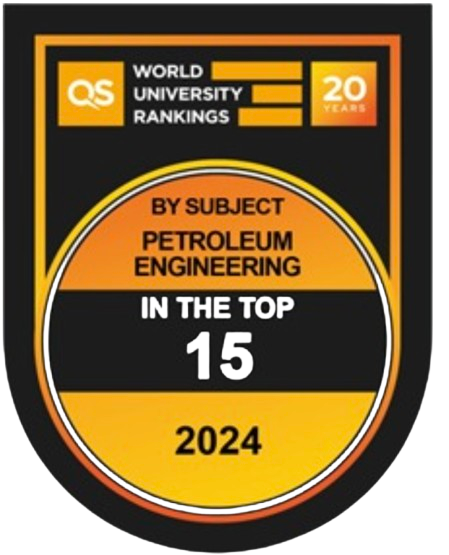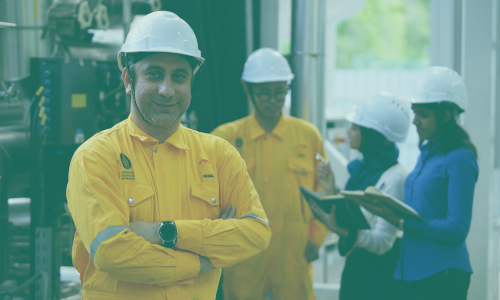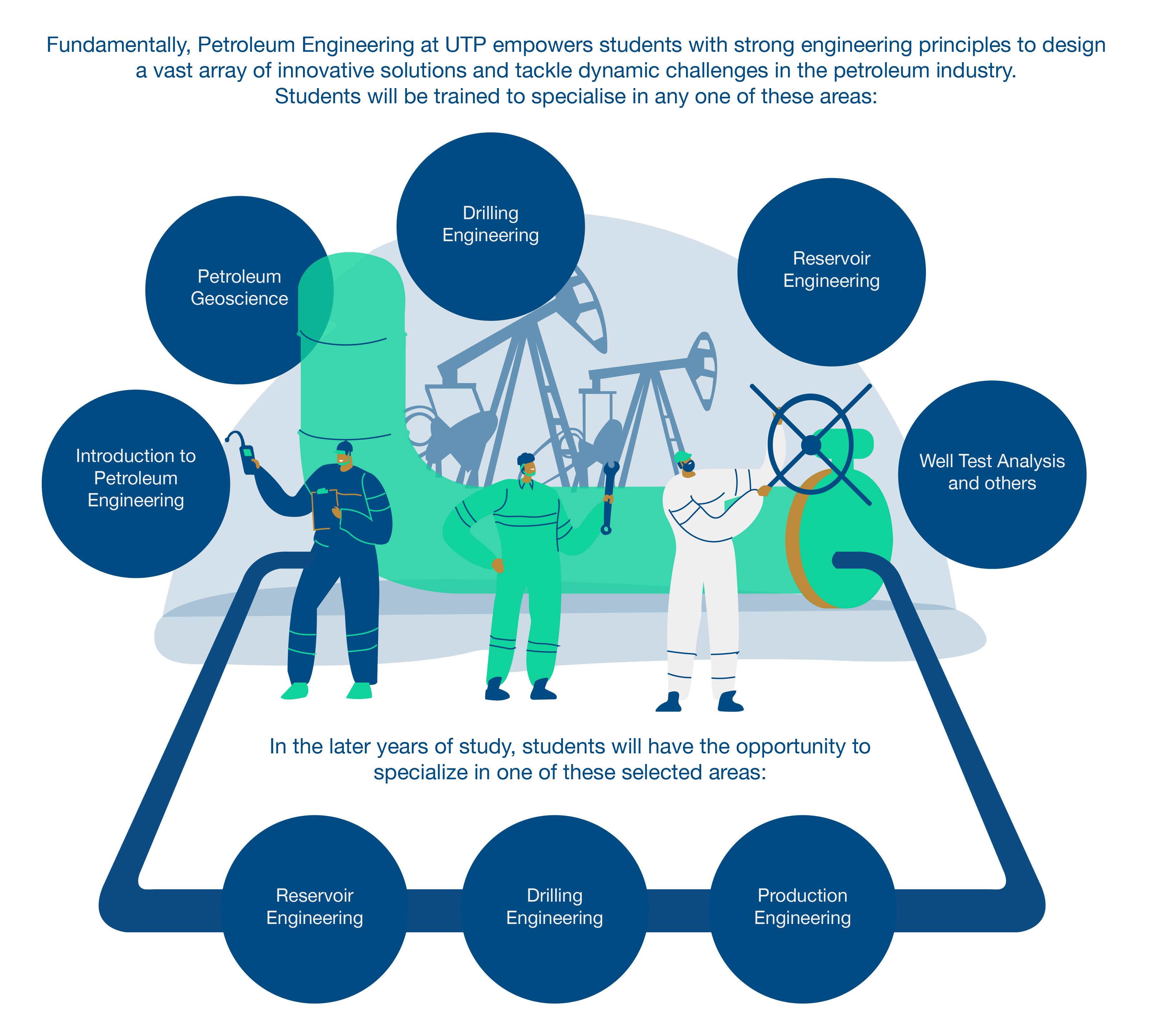Introduction
Petroleum Engineering is an engineering field involving activities related to exploring and producing hydrocarbons from a specific reservoir. The Petroleum Engineering curriculum is developed to prepare students to design solutions for complex petroleum engineering problems and design systems within the upstream sector in the oil and gas industry.
The programme stresses the development of strong fundamentals in mathematics, sciences, and engineering, followed by thorough coverage of fundamental petroleum engineering courses based on the four domains recognized by SPE: Petroleum Exploration and formation evaluation, Reservoir engineering, Production engineering, and Drilling engineering. These courses illustrate the application of the engineering principles to the type of problems and solution methods used in the petroleum industry. In addition, students must enrol in different general courses categorized as national and university requirements to enhance students' soft skills and capabilities. Co Curriculum as well as Ethic & Integrity are also part of the curriculum.
In the final later years of study, students will have the opportunity to specialise in one of these selected areas:
-
Reservoir Engineering
-
Drilling Engineering
-
Production Engineering
-
Renewable Energy



Before completing the study, students are required to complete various project-based courses rangingfrom engineering design, field development project (FDP), and individual project based on relevant industrial problems.
Programme Educational Objectives
- Engineers who are competent with the potential to become leaders in Oil and Gas, and related industries.
- Engineers who are involved towards sustainable development in Oil and Gas, and related industries for the betterment of the society.
Programme Outcomes
To produce well-rounded graduates with the following outcomes:
- Apply knowledge of mathematics, natural science, engineering fundamentals and engineering specialisation to the solution of complex engineering problems.
- Identify, formulate, conduct research literature and analyse complex Petroleum Engineering problems reaching substantiated conclusions using first principles of mathematics, natural sciences and engineering sciences.
- Design solutions for complex engineering problems and design systems, components or processes that meet specified needs with appropriate consideration for public health and safety, cultural, societal, and environmental considerations.
- Conduct investigation of complex engineering problems using research-based knowledge and research methods including design of experiments, analysis and interpretation of data, and synthesis of information to provide valid conclusions.
- Select and apply appropriate techniques, resources, and modern engineering and IT tools, including prediction and modelling, to evaluate complex engineering problems, with an understanding of the limitations.
- Apply reasoning informed by contextual knowledge to assess societal, health, safety, legal and cultural issues and the consequent responsibilities relevant to professional engineering practice and solutions to complex Petroleum Engineering problems.
- Evaluate sustainability and impact of professional engineering work in the solutions of complex engineering problems in societal and environmental contexts.
- Apply ethical principles and commit to professional ethics and responsibilities and norms of engineering practice.
- Function effectively as an individual, and as a member or leader in diverse teams and in multi-disciplinary settings.
- Communicate effectively on complex Petroleum Engineering activities with the engineering community and society.
- Demonstrate knowledge and understanding of management principles, economic decision making and entrepreneurial skills to manage projects in multidisciplinary environments.
- . Recognise the need for and have the preparation and ability to engage in independent and life-long learning in the broadest context of technological change.
Graduation Requirements
In order to graduate with the Bachelor of Petroleum Engineering with Honours degree, students are required to obtain a minimum of
144 credit hours. and a minimum CGPA of 2.00/4.00
|
Summary of Courses Required for Graduation
|
|
Course Group (G) |
Number of Credit Hours |
| NR - National Requirement |
10 |
| UR - University Requirement |
15 |
| CC- Core Common |
25 |
| CD - Core Discipline |
71 |
| CI - Core Industrial Internship |
14 |
| CSp - Core Specialisation |
9 |
|
TOTAL |
144 |
